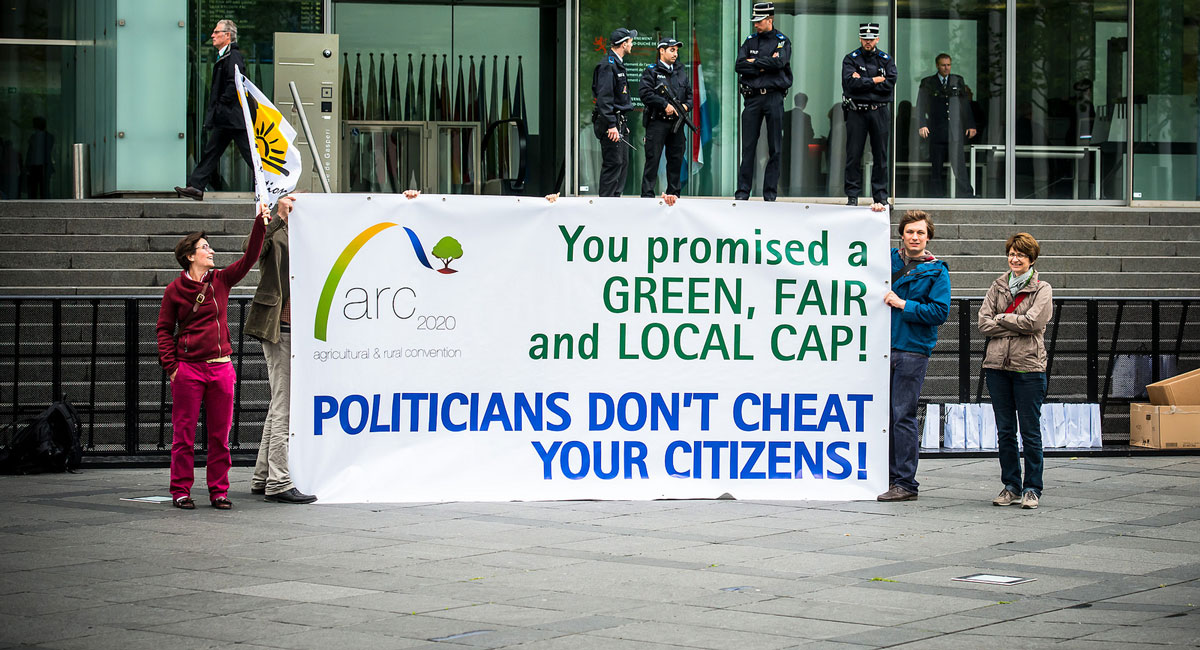Today, the European Parliament was the latest to vote on reforms to the EU’s Common Agricultural Policy. Friends of the Earth Europe issued the following press release, highlighting the results and what they mean for green farming in Europe.
For more about the Common Agricultural Policy and the campaign for its reform, check out Young Friends of the Earth Europe’s reCAP campaign.
—
PRESS RELEASE
FRIENDS OF THE EARTH EUROPE
Movement for food sovereignty and ecological farming continues to grow
The EU’s new agriculture policy is a disaster for the environment, small farmers and developing countries, according to Friends of the Earth Europe. The criticism comes at the end of lengthy negotiations over the rules and support for European farmers until 2020.
European politicians side-lined the ‘greening’ of the Common Agricultural Policy (CAP), according to the organisation, committing the majority of the vast 362.7 billion Euro budget towards support for industrial farming – benefitting multinationals and large-scale farms. This will devastate biodiversity and small farmers in Europe, whilst exploiting cheap raw materials in the Global South and dumping subsidised products in return.
Stanka Becheva, food and agriculture campaigner at Friends of the Earth Europe, said: “We urgently needed reform that ensured long-term food security, rural regeneration and the protection of our natural resources. Instead, the majority of subsidies will be used to prop-up a failing system that benefits a few multinationals and industrial-scale farms. This is a disaster for the environment, small farmers and developing countries.”
Friends of the Earth Europe is critical of the following [1]:
Weak rules for farmers to protect the environment, and insufficient money dedicated to nature protection, ensuring this is the least green CAP in recent decades;The unfair distribution of subsidies, with the majority continuing to go to large farms. This will drive out small and family-sized farmers despite the redistribution of payments between countries and regions;Increased reliance on cheap imports, like GM soy from Latin America, and the continued dumping of subsidised products – ensuring the continued exploitation of developing countries to benefit multinationals.
Friends of the Earth Europe, alongside a growing citizen’s movement, continue to build support for a food and farming system in Europe that allows communities to develop a diverse countryside, independent of agrichemicals and based on food sovereignty and agro-ecological farming.
Stanka Becheva continued: “Politicians have failed to grasp that we need to fundamentally change the way we produce and distribute food, and manage our landscapes. There is a growing movement of people who will continue to work together to ensure we have a viable and sustainable countryside producing quality food that benefits local communities.”
***
NOTES:
[1] Friends of the Earth Europe is also critical of:
- The exemption of more than 30% of utilised agriculture area from greening measures;
- Crop rotation is not included in greening measures, despite its known positive effects on environment; instead legumes can now be planted on ecological focus areas rich in biodiversity.
- Positive approaches – like the small farmers scheme – remain optional for member states.
- The suggested maximum amount of payments is still too high, with a single holding allowed up to 300,000 euro per year. This will be agreed during the budget debates next week.

